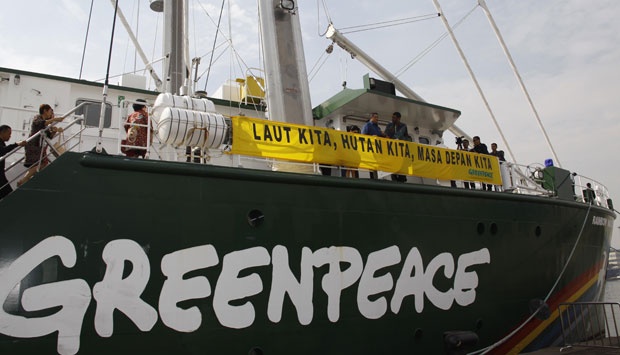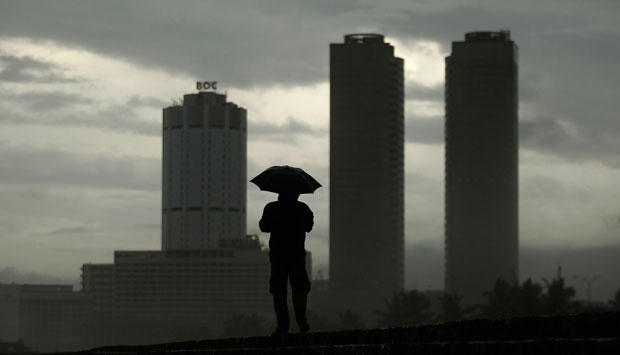New Ways to Lower Investment Risk Seek to Propel Climate Action
2 July 2016 12:46 WIB

TEMPO.CO, London - As small-scale farmers around the world seek to cope with climate change by adopting drought-resistant crops or methods to capture and store water, finding the money can be a problem, and interest rates on loans are often high.
But a new "climate-smart lending platform" aims to make credit easier and cheaper to access for farmers working to protect their crops, while helping lenders find customers who are a lower credit risk because their harvests are less vulnerable to extreme weather.
The platform, targeting 450 million small-scale farmers around the world, is one of four new projects that have won the backing of the UK-based Global Innovation Lab for Climate Finance which hopes to channel enough cash, fast, to meet the global goals to curb climate change set last December in Paris.
"We need to make sure we are moving from thought to action after the Paris agreement, that we are getting new projects off the ground," said Barbara Buchner, director of the innovation lab and a senior director of the Climate Policy Initiative.
The labs goal, she said, is to identify innovative ways to leverage the limited amount of government funding available, in order to lower risks and smooth obstacles for private investors, who have the cash to make action on climate change happen at the huge scale needed.
That might be through insurance to guarantee cost savings from energy efficiency investments, for instance, or government-guaranteed bonds to support construction of water security infrastructure.
"The goal over time is not to require public investment any more, to make things sustainable," Buchner said.
The innovation lab has so far mobilised close to $600 million in seed money for initiatives from its backers, which include the British, Danish, Dutch, German and U.S. governments, as well as banks, foundations and other investors.
ENERGY SAVING
Jane Wilkinson, a director of the Climate Policy Initiative with a background of working in Indonesia, said that for most private investors, "various forms of risk - perceived or real - are the biggest barriers" to investment.
In Mexico, for instance, persuading companies or government bodies to spend money on improving energy efficiency - a crucial way to cut climate-changing emissions - can be a challenge, both because its often not a priority and because they are unsure just how much they could save by doing it, she said.
But an "energy efficiency enabling initiative", piloted in Mexico by the Inter-American Development Bank, uses small amounts of cash to buy insurance for those investing in energy efficiency. If the project works, they spend less on energy; if it doesnt, they get an insurance payout, Wilkinson said.
Analysis of the scheme, one of those backed by the lab, suggests each $100 million spent on insurance should generate between $3 billion and $9 billion in energy efficiency improvements.
Wilkinson said the Mexico project is now set to be replicated in El Salvador with the backing of the Green Climate Fund, which is expected to channel much of a promised $100 billion a year in cash to help poorer countries curb their emissions and deal with climate impacts.
SMARTER INSURANCE
Kenya, meanwhile, is driving private investment into water facilities by guaranteeing bonds issued to pay for the projects, which "makes them a very secure investment", Wilkinson said.
An innovation lab analysis found that expanding government backing for such green bonds in other developing countries could drive $1.2 billion a year in private investment into climate-resilient water projects through 2030.
Another project aims to boost take-up of property insurance in Indonesia, Bangladesh and the Philippines by enabling companies, governments and other potential buyers to better understand the risks they face through modelling and access to good data.
Expanding the number of people who are insured against worsening losses from storms, drought, floods and other climate-related disasters could reduce the estimated $180 billion in annual losses around the world from natural disasters.
It could also encourage investment in climate adaptation to lower disaster risks and make policies cheaper, Wilkinson said.
Most private investment to deal with climate change has gone into clean energy or other technologies to cut emissions so far.
Measures to adapt to climate change - such as installing early warning systems or water storage - rarely offer a clear return on investment, a major reason relatively little private money has flowed to them.
"We need to incentivise people to come in at scale to invest in adaptation or resilience," Buchner said. That will require the creation of "viable business models", she added.
ANTARA























